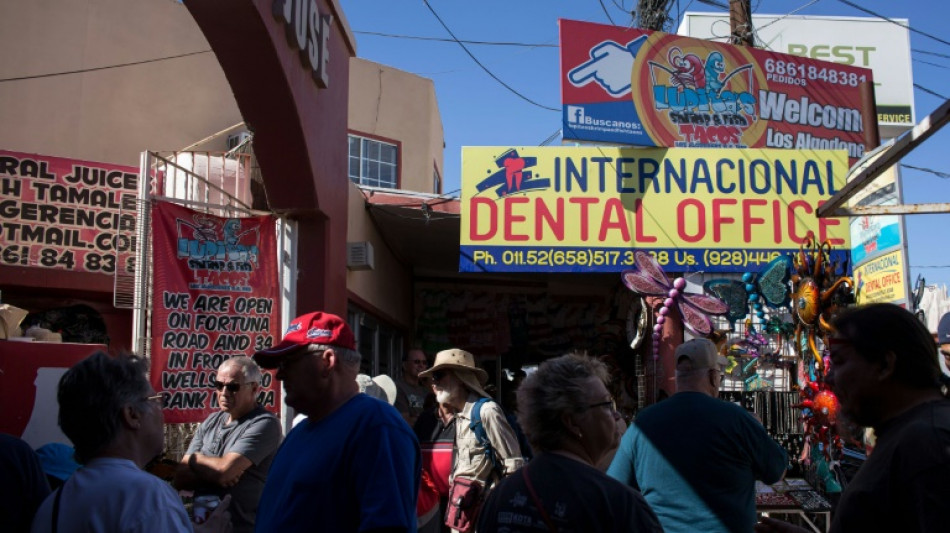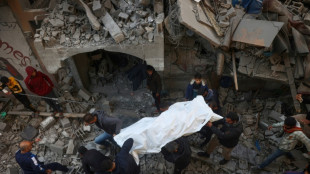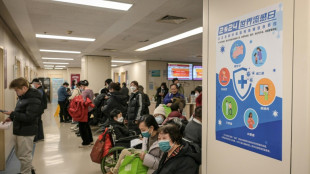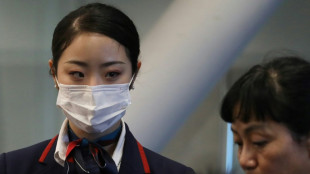

Medical tourism in spotlight after Mexico kidnapping
As reports swirl around the recent kidnapping in Mexico of four Americans, two of whom were killed, one detail has drawn particular attention -- they had crossed the border for a medical procedure.
The revelation threw a spotlight on the steady stream of so-called medical tourism from the United States to its southern neighbor, as Americans cross the border seeking lower costs or treatments inaccessible at home, despite the risks -- including that of going to a country known for drug-related violence.
Americans make the trip for everything from dental work to cosmetic surgery to treatment for cancer.
The industry in Mexico has grown steadily in the past two decades, with a lull during the Covid-19 pandemic, and was valued at a little over $5 billion in 2018, according to the state-owned National Exterior Commerce Bank.
Mexico is now one of the top medical tourism destinations in the world, though the country has had to contend with a negative image associated with entrenched organized crime and cartel-related violence.
But risks associated with medical tourism are more often linked to substandard care if one is not careful in selecting a provider than "political or social violence," said Josef Woodman, CEO of international health care consulting company Patients Beyond Borders, told AFP. "That is so rare in our community."
The US Centers for Disease Control and Prevention (CDC) also warns of potentially poor quality of care as a medical tourism risk, along with infection and difficulty communicating with staff.
Tamaulipas state, where the four Americans crossed into the crime-plagued city of Matamoros, is one of the Mexican states most affected by crime. The US State Department advises citizens to avoid the region entirely, citing kidnapping as one danger.
But it is not a state particularly popular for medical tourism, said Woodman, as it lacks the medical infrastructure other areas have cultivated.
And far from being discouraged by the grisly news, Woodman said his organization's inbox has been "deluged over the past 36 hours" by requests from individuals interested in travelling for procedures.
Just a few days ago, Colorado retiree Amber O'Hara recommended to a friend the dental clinic in Mexico where she has traveled multiple times for treatment.
"The cost is why I go," O'Hara said, noting, however, that the care was also top notch.
"I felt very comfortable and confident in all aspects of treatment and will definitely go again when needed," she told AFP.
Her dentist is in the town of Los Algodones, nicknamed "Molar City" for its wide array of dental offices catering to foreigners.
It is snug against the Arizona border, on the other side of the country from Matamoros, which O'Hara said she would avoid, as "there have been more than one bad situation there."
- 'Prohibitive' cost -
She is one of 1.2 million Americans that Patients Without Borders estimates travel to Mexico for healthcare annually.
Dental treatment is one of the most commonly sought procedures, according to the CDC, along with "surgery, cosmetic surgery, fertility treatments, organ and tissue transplantation, and cancer treatment."
Woodman said surgeries to control weight not covered by a patient's insurance are common goals among Americans traveling to Mexico.
Getting "unavailable or unapproved" procedures is a top reason for going abroad, according to the CDC, which also highlights lower costs -- averaging at 40-60 percent cheaper for Americans in Mexico, according to Woodman -- as a major driver.
A 2020 study that surveyed more than 400 people crossing the US–Mexico border found 92 percent cited cost as a key factor in choosing medical tourism.
"In the US, we have the most expensive healthcare system on the planet," said Elizabeth Ziemba, president of training and consulting group Medical Tourism Training.
"The possibility of having to spend a great deal of money to access health care in the US is prohibitive for some people so they look at other cost effective alternatives."
But, she added, when looking abroad it's crucial to research thoroughly the healthcare provider, as well as the destination, as substandard care often comes with an enticing price tag.
"I encourage people to really do their homework."
C.Abatescianni--IM




